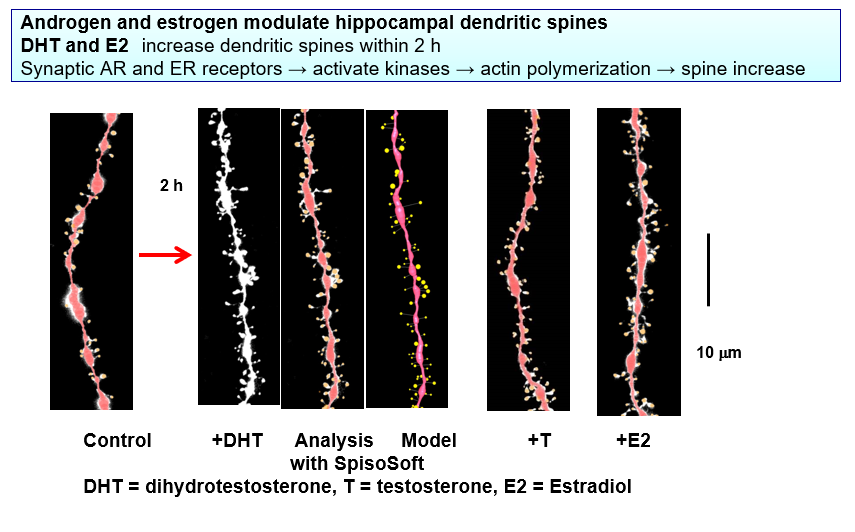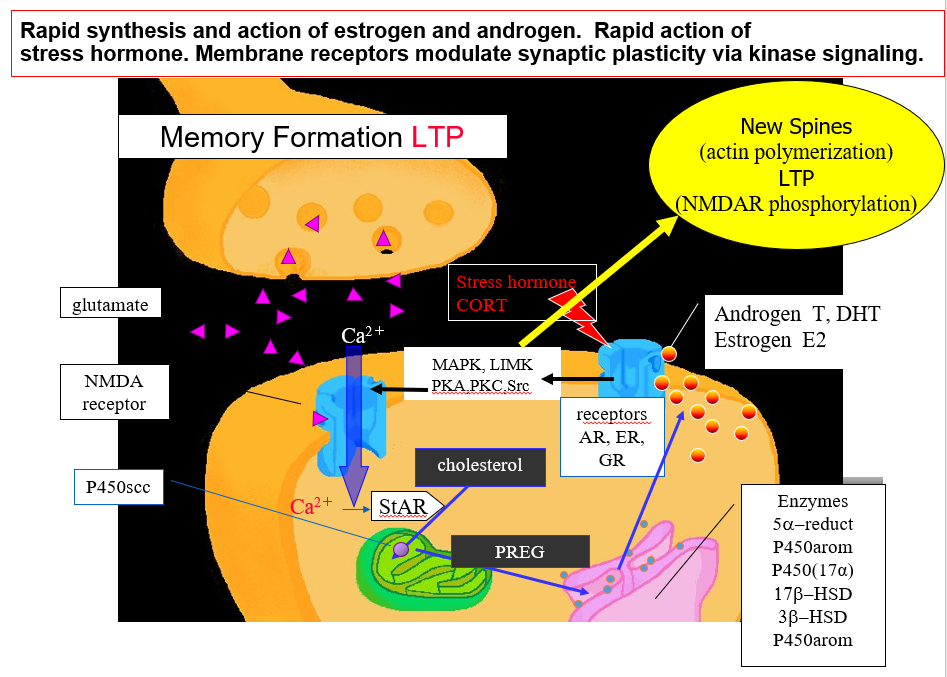|
We study the synaptic plasticity of the hippocampus, which is the center for learning and memory. Our main research interest lies in the endogenous synthesis and action of estrogens / androgens and corticosteroids, which are neuromodulators of rapid synaptic transmission. Our goal is to establish "synaptocrinology" as a new topic independent of the present neuroendocrinology. |
 |
Examples of topics of our study.
-
Prevention of cognitive decline with androgens and estrogens which are synthesized in the hippocampus. Androgens and estrogens are not merely sex hormones but enhance the memory function.
It was the long-accepted theory that sex steroid hormones are not synthesized in the brain. This had been common knowledge in the field of neuroendocrinology until very recently. But I feel it is very crazy. If androgen and estrogen are not synthesized in the brain, then the brain must be completely controlled by sex hormones secreted from testis and ovary ! I did not agree with this classic theory.
After the intensive research over more than 20 years since 1995, we have achieved the nice overview of the synthesis and action of steroids in the hippocampus. Brain-steroid study is progressing as a new field of neuromodulators.
The non-genomic signaling mechanism is the following: neurosteroid binding to membrane receptors �driving protein kinases �leading to spine increase or long-term potentiation. This non-genomic mechanism is completely different from the classical genomic mechanisms which take more than 10 hours via movement of classical steroid receptors into the nuclei, resulting in the gene expression and protein synthesis.
-
Meaning of hormone replacement therapy for regeneration of neural circuits
As a therapy for dementia or Alzheimer's disease caused by aging, estrogen replacement therapy and testosterone replacement therapy are the most successful ones, which are applied to more than 10 million people worldwide. We found that male and female hormones synthesized in the hippocampus work not as sex hormones, but as neurotrophic/synaptotrophic factors, therefore the sex hormone replacement therapy compensate for the shortage of neurotrophic/synaptotrophic hormones caused by aging. Contrary to common sense, male brain synthesizes more estrogens than female brain. Estrogens construct male neurocircuit! We are now investigating the differences in male and female neurocircuits in the center of memory. -
Study for the effect of stress hormones (corticosterone, cortisol (CORT)) on synapses
Many researchers are investigating the stress which causes depression. We think that the beneficial effects of CORT are A) deciding "Fight or Flight" in case of encountering enemies or dangers, B) working as a morning wakeup signal in the biological inner clock. The molecular mechanism is that steroid receptors anchored to the membrane of synapses non-genomically (within one hour) drive protein kinases, leading to spine increase or long-term potentiation.
 |
 |


